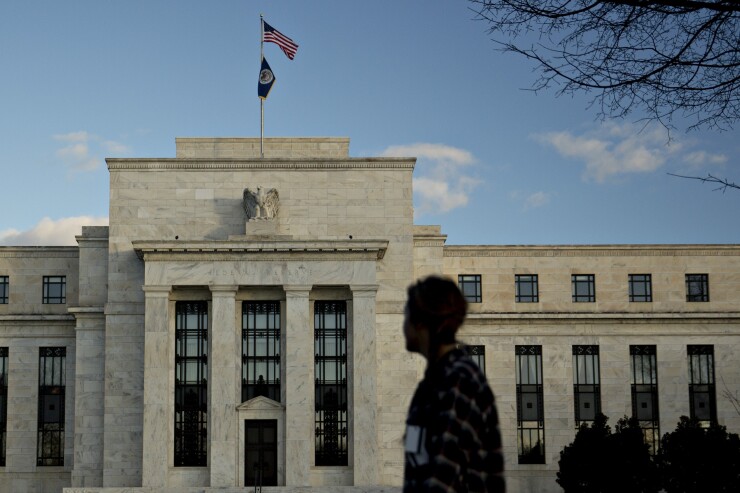Our daily roundup of retirement news your clients may be thinking about.
While the Fed reduced interest rates over the past several years in order to try to save a weak economy from depression, it's a problem now because this policy remains in place today despite a stronger economy. And this has created several dislocations in financial markets. Nobody knows for sure when the Fed will move rates higher, but what is more certain is that the journey will be bumpy, according to this article on MarketWatch. The likelihood of periodic volatility is understandably concerning to retirees, but it's important to try to keep clients calm. It should not be a concern among retirees who depend on their portfolio for income. The increase in rates would only mean returning to a certain condition where investors can increase their earnings and boost spending, while the need to save is reduced.

To ensure that people won't outlive their nest egg, it is important that they plan for retirement before leaving the work force for good, according to this article on Money. They should also create a more detailed strategy for transition into retirement, including the timing of Social Security benefits. Monitoring their retirement plan and being flexible to changes can also help in making sure their savings will last while they are around.
A major debacle did not deter a worker from pursuing financial independence as he and his wife are on track for an early retirement, according to this article on Forbes. Part of their success is keeping their budget below than what they earn, and there are factors that help them achieve their plan to retire in their mid-40s, the worker says. One factor is that his wife shares his financial goals and attitude towards spending. It is also possible to retire early even without paying off debt.
A survey by Aon Hewitt has found that workers with student loans are making lower contributions to their retirement plans, putting their retirement security at risk, according to this article on CNBC. Many workers opt to put their student loans ahead of retirement saving, as investments yield poor returns, according to an expert with Morningstar. "Given lower expected returns in U.S. stocks and bonds, paying down debt may give them a better return than what they would get in the market."
Saving for retirement appears to be a daunting task for many people, as they make the mistake of relying on a certain benchmark based on unrealistic assumptions, according to this article on CNNMoney. People face many factors and uncertainties when saving for retirement, and they have other priorities to make, such as raising children and paying off financial obligations. To improve their retirement prospects, clients are advised to be systemic with saving, to set aside as much as they can, and to make some financial adjustments when needed.





